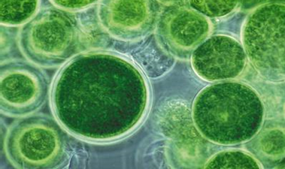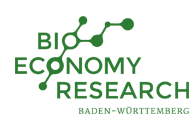Microalgae - Integrated use for food and feed

Microalgae are small photosynthetic organisms that live in lakes, streams and oceans. They can produce five times more biomass per area compared to classical energy crops. As such their potential for use in bio-based energy production is being investigated in many studies.
Due to their specific composition however, microalgae also possess a large potential for use in human and animal nutrition: for example they are promising sources of amino acids or lipds.
The research area "Microalgae - Integrated use for food and feed" integrates scientists from cell biology, engineering, food technology, animal nutrition, nutritional science, medicine, agricultural and food policy in order to analyze the potential of microalgae for the use in the food and feed sector.
The individual research projects focus on:
- Process design for cultivation of microalgae in technical systems
- Adaptation of cell disruption and extraction processes for the production of high quality nutrients from microalgae
- Technofunctional and physicochemical characterization of microalgae-derived proteins and lipids and development of stand-alone and hybrid products by substitution of animal-derived ingredients
- Evaluation of nutritional values of microalgae products for human and animal nutrition and safety aspects
- Sustainability of microalgae production processes and consumer acceptance
More about the research projects
